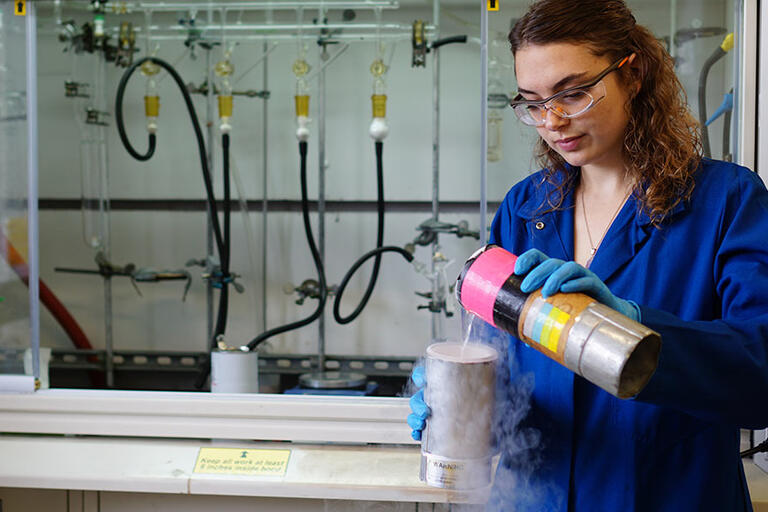The College of Chemistry is comprised of:
Both disciplines provide the opportunity and means for addressing major scientific and technological challenges, such as climate change, increasing the world's food supply, synthesizing new materials, and discovering and delivering important drugs. The College prides itself on a balanced approach to science, with research areas ranging from experimental to theoretical. Faculty in both departments are engaged in teaching and research in a wide range of applications and subdisciplines.
The College offers undergraduate degrees in chemistry, chemical biology, and chemical engineering, as well as double majors in chemical engineering and materials science and engineering, and in chemical engineering and nuclear engineering. A new option is a concentration in materials chemistry.
The College offers doctoral programs in chemistry and chemical engineering, and a master's program in chemical engineering, including a concentration in product development. Cross-disciplinary programs are encouraged.
The chemical and biomolecular engineering faculty have established world-renowned research programs in thermodynamics, surface catalysis, electrochemical processes, fluid mechanics, separation and transport processes, polymer processing, and control systems. New research being explored includes biochemical engineering, nanotechnology, and the study of electronic and optical materials.
Faculty in the chemistry department are currently interested in research that includes analytical, inorganic, organic, and physical chemistry, as well as such diverse areas as nanoscience; nuclear, biophysical, materials and atmospheric chemistry; and structural and chemical biology.
College researchers collaborate with scientists across campus, the nation, and internationally. Researchers have access to numerous facilities on campus including the microfabrication laboratory and the brain imaging center. The nearby Lawrence Berkeley National Laboratory (Berkeley Lab) houses numerous state-of-the-art labs such as the charged particle accelerators used extensively by our nuclear chemists. In addition, Berkeley Lab's Advanced Light Source is one of the world's brightest sources of ultra-violet and soft x-ray beams and is used by college researchers to decipher the folding of biomolecules.


